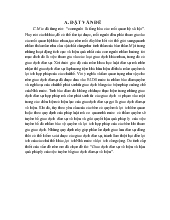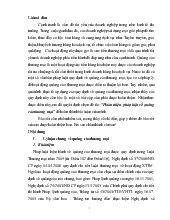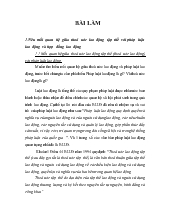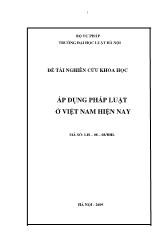Luận án Mối liên hệ giữa phát triển bền vững xã hội và hiệu quả hoạt động trong chuỗi cung ứng, vai trò trung gian của liên kết trong chuỗi cung ứng trường hợp nghiên cứu tại Việt Nam
- Người chia sẻ : vtlong
- Số trang : 215 trang
- Lượt xem : 16
- Lượt tải : 500
Các file đính kèm theo tài liệu này
 luan_an_moi_lien_he_giua_phat_trien_ben_vung_xa_hoi_va_hieu.pdf
luan_an_moi_lien_he_giua_phat_trien_ben_vung_xa_hoi_va_hieu.pdf
- Tất cả luận văn được sưu tầm từ nhiều nguồn, chúng tôi không chịu trách nhiệm bản quyền nếu bạn sử dụng vào mục đích thương mại
Bạn đang xem trước 20 trang tài liệu Luận án Mối liên hệ giữa phát triển bền vững xã hội và hiệu quả hoạt động trong chuỗi cung ứng, vai trò trung gian của liên kết trong chuỗi cung ứng trường hợp nghiên cứu tại Việt Nam, để xem tài liệu hoàn chỉnh bạn click vào nút DOWNLOAD LUẬN VĂN ở trên
The last decade has witnessed the emergence of sustainability, one of the most
critical business concerns in a firm’s supply chain. Many firms have realized that it may
go wrong if the supply chain is ignored when facing global sustainability challenges
(Cherrafi, Garza-Reyes, Kumar, Mishra, Ghobadian, & Elfezazi, 2018). Moreover, due
to the advanced consciousness among collaborators of the local society and
environment, the importance of social sustainability in the supply chain has regularly
increased (Schmidt, Foerstl, & Schaltenbrand, 2017). According to Bergman, Bergman,
& Berger (2017), sustainability means satisfying today’s demands without endangering
the needs of future generations. Additionally, many researchers have investigated
whether enhancing sustainability practices in a firm’s supply chain is essential to
developing supply chain performance (Singh & Trivedi, 2016; Winter & Knemeyer,
2013).
In addition, famous global brands such as Adidas, H&M, Nestle, and Coca-Cola
have gradually moved forward to build a more sustainable supply chain. They are
controlling the adherence of their strategic stakeholders and developing their ability to
identify social, economic, and environmental issues in focal companies (Nicolăescu,
Alpopi, & Zaharia, 2015). According to the triple bottom lines, managers should
improve the relationship between economic, social, and environmental activities to
achieve sustainability and high performance in their supply chain (Sánchez-Hernández,
Vázquez-Burguete, García-Miguélez, & Lanero-Carrizo, 2021). In other words, these
activities mentioned above must be integrated into the company’s final strategies;




